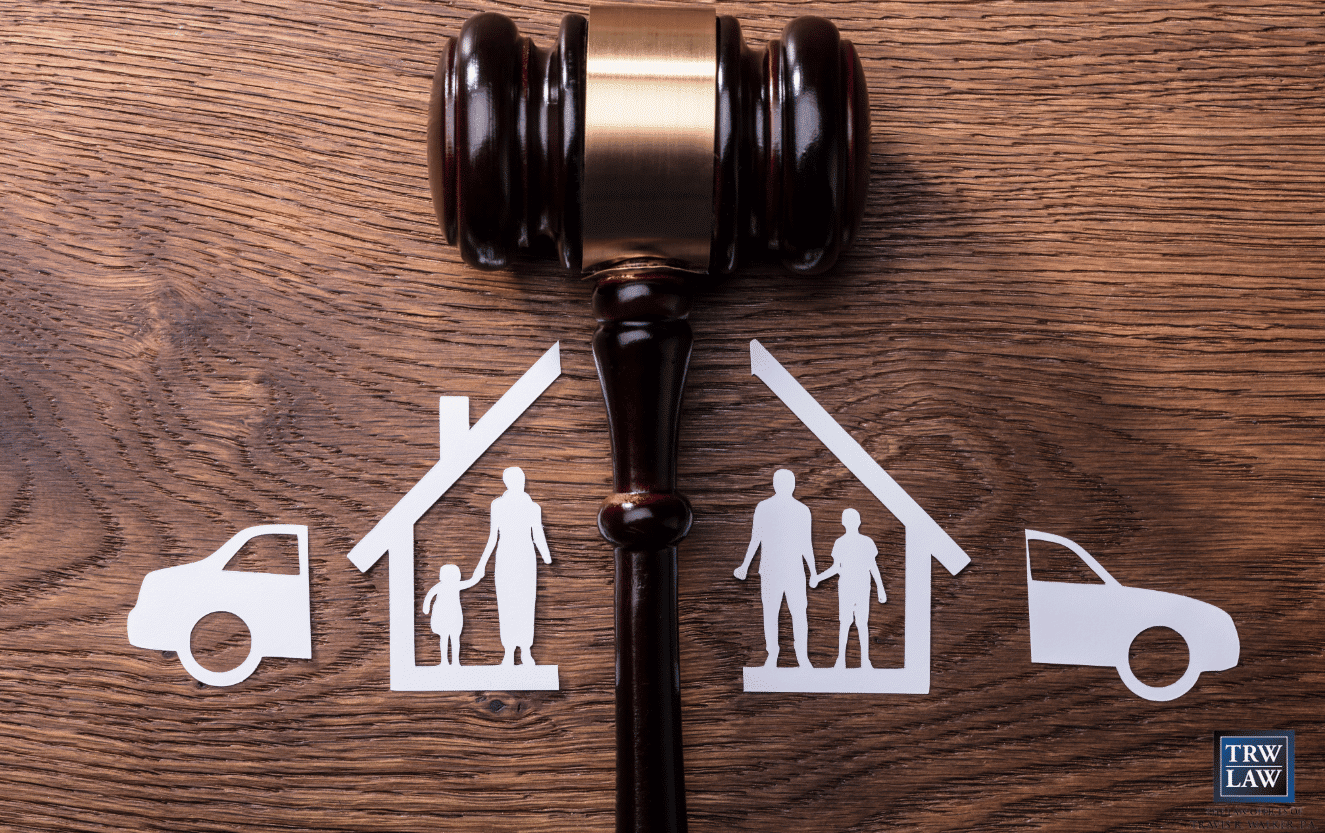- Divorce Without Spouse’s Consent: In Florida, divorce proceedings don’t require both parties to agree. Even if a spouse refuses to cooperate or sign divorce papers, it’s possible to file for a no-fault divorce based on irretrievable breakdown of marriage.
- Challenges Faced: Reasons for a spouse not signing divorce papers vary, including uncooperativeness or estrangement. Each situation presents unique challenges, such as establishing special service procedures if the spouse’s whereabouts are unknown.
- Obtaining Divorce Without Signature: If a spouse doesn’t sign the papers, the filing party can still proceed with the divorce by filing the petition in court and serving papers on the other spouse. A default judgment may be granted if the non-filing spouse doesn’t respond, leading to an essentially uncontested divorce.
- Timeline: The duration of obtaining a divorce without the other party’s signature depends on various factors. If the other spouse doesn’t respond, it can be relatively quick. However, if the spouse actively fights the divorce, it may involve litigation, mediation, and settlement conferences, potentially extending the process.
- Legal Counsel: Consulting with an experienced Florida divorce lawyer can help navigate the complexities of divorce proceedings and ensure your rights are protected. The Law Offices of Travis R. Walker offers confidential consultations to discuss divorce options.
Parents with custody disputes typically negotiate to establish a mutually acceptable parenting plan and present it to the court for approval. If parents can’t agree on child custody arrangements, a judge will issue a parenting plan. When deciding child custody cases in Florida, a judge’s priority will be the child’s best interests rather than the requests of the mother or father.
However, if a child is in danger, is suffering from abuse, or is at risk of being taken out of the state, a judge may issue an emergency custody order instead of waiting until a final hearing. If you believe you need to take immediate action to protect your child’s health and well-being, you may need to file for an emergency custody order. The team at Travis. R. Walker, P.A., can help you understand your rights and help you file an emergency custody order in Florida.
Legal Grounds for Filing an Emergency Custody Order
In Florida, you can apply for emergency custody in two ways: with an ex-parte motion or by notifying the other parent. In an ex-parte motion, the judge decides on the petition before the other parent is notified. Ex-parte motions are rare and used only for the most serious cases. In most cases, a petition will be filed with the court, and the other parent will have the opportunity to respond in court.
To file for immediate physical custody of a child, one of the parents must believe there are grounds for the court to take immediate action to remove the child from the other parent’s custody. There are several reasons to file for emergency custody. Judges may issue an emergency custody order in the following situations.
Child Abuse or Neglect
Child abuse and neglect can include any of the following:
- Sexual abuse
- Physical abuse
- Severe neglect
- Abandonment
- Medical neglect
- Emotional abuse
Risk of Child Abduction
Another reason the court may grant an emergency custody order is if your child is at risk of being taken out of the state by their other parent.
Other Immediate Harm or Danger to the Child
Other grounds for granting emergency custody may include dangers beyond abuse or neglect, such as the following:
- A parent’s substance abuse
- Dangerous living conditions
- Domestic violence, including to the child’s sibling or parent
- Criminal activity
- A mental health crisis
The Process of Filing an Emergency Custody Order in Florida
Because a court will only grant an emergency custody order if it believes your child is in immediate danger, you must provide evidence to support your case. A skilled family law attorney can guide you through how to file an emergency custody order in Florida and help you complete the following steps.
Gathering Proper Documentation and Evidence
The type of evidence you need will depend on why you’re filing for emergency custody, but you may need documentation such as the following:
- Medical records: Collect any medical reports that show an immediate risk to your child’s health or well-being. Such records may include evidence of abuse or neglect.
- Police reports: If you’ve contacted law enforcement regarding concerns about your child’s safety, include copies of the police reports.
- Witness statements: Secure affidavits from teachers, counselors, neighbors, or other witnesses who can attest to the emergency situation affecting your child’s welfare.
- Text messages and emails: Gather any communications between you and the other parent that can provide evidence of immediate risk to your child or their plan to remove your child from the state.
- Financial records: Though not always needed, financial records might help demonstrate the instability of your child’s living situation in some situations.
Completing the Required Court Forms
Next, complete the required court form. This may involve the following steps:
- Download or obtain forms: Get the required forms from the Florida State Courts website or your local courthouse. Look for forms with titles such as “Petition for Temporary Custody” or “Emergency Custody Order.”
- Fill in the forms: Complete the forms with accurate and complete information. Make sure you provide specific reasons for seeking emergency custody, linking to the evidence you’ve gathered.
- Consult legal advice: The judge will decide your case based on your forms, so having an attorney review the completed forms is essential. An experienced family law attorney will verify that you’ve included all necessary information and haven’t made any mistakes that could jeopardize your case.
Submitting the Petition to the Court
Take all your completed forms and the gathered evidence to the Clerk of Court’s office at your local courthouse. Ask to file them as part of an Emergency Custody Petition. There will be a filing fee, which varies by county. Some jurisdictions offer fee waivers for those who can’t afford the charge. After you’ve filed, you’ll be issued a case number.
How the Courts Handle Emergency Custody Orders
An emergency custody order is a time-sensitive issue that follows a strict process. The specifics will vary depending on the circumstances of your case and your jurisdiction but may include the following.
Review Process by the Courts
A judge will review the emergency custody order quickly, often by the end of the day. As part of their examination, the judge will decide if there’s an immediate risk to your child’s well-being. The evidence must be compelling and demonstrate immediate danger or serious neglect. Your petition will be dismissed if it doesn’t meet strict legal standards.
Issuing the Temporary Custody Order
If the judge finds merit in your case, they’ll issue a Temporary Emergency Custody Order. This order will likely go into effect immediately and remain in effect until the full hearing. For an ex-parte hearing, the other parent must be notified of the order as soon as possible.
The temporary order is only in effect until the formal hearing.
Hearing Process and Timeline
After issuing the temporary custody order, the court will schedule a formal hearing where both parents can present their case by presenting evidence and witnesses. Because this is an emergency proceeding, the court will try to resolve it as quickly as possible. It will probably take less than one month from the initial filing until the final decision.
Possible Outcomes from Filing an Emergency Custody Order
Here are some of the possible outcomes that could result from filing an emergency custody order.
Gaining Temporary Custody
If the court grants you temporary emergency custody, your child will be immediately transferred into your care until a formal hearing occurs. These orders are often short-term and last until the court can thoroughly evaluate the case.
Usually, this spans from 14 to 28 days, but it can vary depending on the court’s schedule. The court may attach specific conditions to the temporary custody order, such as allowing supervised visitation for the other parent or requiring your child to attend counseling.
Court-Ordered Child Protection
The court might require that the other parent can only visit your child under supervised conditions, usually by a social worker or another approved adult. In some cases, the Department of Children and Families may become involved in conducting assessments or offering protective services.
Permanent Custody Orders
To grant permanent custody, the court will evaluate numerous factors, such as your child’s physical, emotional, and educational well-being and the stability each parent can offer. The judge will rely on evidence and testimonies presented during the full custody hearing, which is a more comprehensive proceeding compared to the initial emergency custody hearing.
Seeking Legal Assistance
Given the stakes involved, having a family law attorney advocate for you and your child can help you get the best outcome. At The Offices of Travis R. Walker, P.A., we understand the complexities involved in child custody cases. We can provide the level-headed guidance you need to meet your child’s best interests.
Contact us today at (772) 708-0952 to schedule a consultation.













